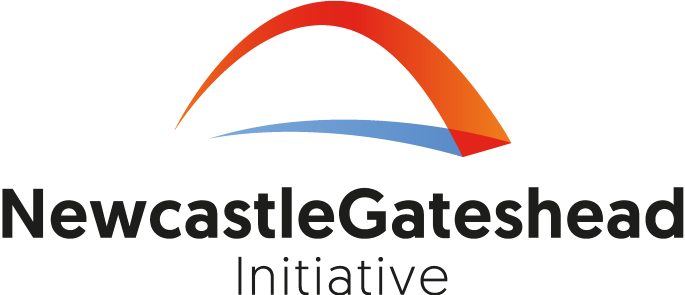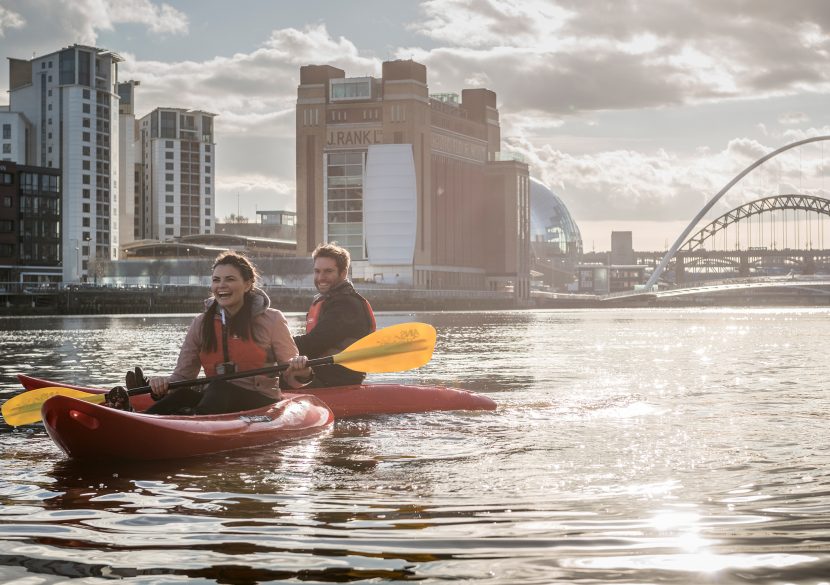In the week that should have been English Tourism Week, new research has revealed that the economic loss to the North East visitor economy could be nearly £3bn if lockdown continues into the summer months*.
The research was conducted by NewcastleGateshead Initiative (NGI) in collaboration with a range of partners, as well as a newly formed tourism industry panel. The sector can expect a loss of up £955m if the lockdown continues through to the end of May, however the impact will be far greater if it lasts for the entirety of summer.
Tourism is the fourth largest sector in the North East, worth over £5bn to the economy each year and supporting over 66,000 jobs in the region. In 2018 the region welcomed over 90 million visitors – an increase of eight million in the space of five years.
50 per cent of the businesses surveyed indicated that without additional support from the government they would not last for more than three months of lockdown. Retaining staff to allow for re-opening is a major concern for businesses, 70 per cent of businesses have, or plan to, furlough staff, while 17 per cent have already made the difficult decision to cut jobs**.
NGI is working alongside local authority partners, Newcastle City Council and Gateshead Council, and the region’s tourism industry to make sure that the North East’s voice is heard on a national stage. The organisation is using the intelligence gathered to ensure that the industry gets the support it needs, and its voice is heard by key partners in the region and at a national level through bodies such as VisitEngland.
Sarah Green, Chief Executive of NewcastleGateshead Initiative, said: “We have spoken to over 600 businesses in the region to offer support, gather intelligence and understand the impact of covid-19. It is clear that tourism is one of the industries hardest hit by the current situation and that businesses are looking for support and guidance.
“Tourism businesses support the lockdown measures as an essential step to save lives. Where they can, we have seen many businesses stepping in to support the NHS and key workers. We have worked with over 80 accommodation providers to identify emergency beds for key workers and others impacted by the crisis.
“It is clear that the impact of lockdown on the tourism economy is devastating. The region has worked very hard to grow visitor numbers by eight million over the past five years. Our tourism strength is based on the breadth and diversity of the sector, therefore every business lost has a significant impact on the attractiveness of our offer. In regional terms, the tourism sector is the fourth biggest employer supporting 66,000 jobs.
“Tourism also plays a critical role in changing perceptions of the region – supporting the government’s levelling up agenda by driving inward investment and capital development. It is therefore critical that policy makers, both regionally and nationally, work with the industry to find ways to mitigate the current challenges and to ensure we position our tourism businesses for the future – retaining jobs and the attractiveness of our region.
“In the longer term, we know that people will want to travel, it is human nature to want to explore, and we need to make sure that when this happens people think of the North East as a great place to visit. We need to have a variety of diverse tourism businesses, from local SMEs to the large corporates, ready to give a great authentic North East welcome.”
Rhiannon Hiles, Deputy Director at Beamish Museum, added: “These are unprecedently difficult times, and the pandemic has presented significant challenges for businesses and organisations across all sectors of the economy. Right now the main focus of our work at Beamish Museum is recovery planning, and we’re working hard to ensure that we’re ready to welcome our much-valued visitors as soon as the UK government gives the museums sector the go-ahead to open its doors once again. The health and safety of our visitors, staff and volunteers is our number one priority and we’ll be engaging with all available sources of advice and support to ensure that our offer, upon opening, adheres to government guidelines and best practice.
“Since closing on the 20th March, we’ve been encouraged and humbled by overwhelmingly positive messages of support from our visitors through the museum’s social media channels, and we’re very much looking forward to opening our doors once again once it is safe and the right time to do so.”
The research was revealed at the first of a new series of webinars, ‘Innovating and Adapting in 2020’, run by NGI as part of its GX Project aimed at supporting North East SMEs.
Further webinars will focus on how tourism businesses can, and are, adapting and innovating during these challenging times. These will include useful information and a platform for discussion around subjects such as plans for restarting, digitising services and using data smartly.
Grants are also currently available as part of the project for SMEs looking to drive innovation in the North East LEP (Local Enterprise Partnership) area. The grants will cover up to 40 per cent of a project up to the value of £3,000 and will support SMEs looking to develop new products or services.
Sarah added: “These webinars aim to provide a platform for discussion and best practice advice on how businesses can adapt and innovate in these uncertain times. Through conversation we’ve had it’s clear that the tourism industry will not be able to switch back on as quickly as it was shut down but when it is time, the industry needs to be ready to embrace the new normal.”
This week saw the winners of this year’s North East England Tourism Awards revealed at a virtual event. Originally due to take place in March, the awards provide an opportunity to celebrate the North East’s tourism sector and what it contributes to the region.
Sage Gateshead and Falconry Days were both double winners, with Maldron Hotel Newcastle taking home the New Tourism Business Award – one of three new categories introduced for the 2020 awards alongside Experience of the Year and the International Tourism Award.
Ian Thomas, Director of Leisure Tourism and Research at NGI, added: “The tourism industry is critical to the whole economy and will play a huge part in its recovery when domestic travel returns.
“The North East Tourism Awards are a perfect opportunity to continue to shout about these businesses to help ensure that once the current situation eases, we’re in the strongest possible position to benefit from a predicted upturn in domestic tourism.”
For more information on the GX Project webinars visit www.ngi.org.uk/webinars-2020
*Calculated using historic STEAM (Scarborough Tourism Economic Activity Monitor) data
** Data gathered from 90 depth interviews with North East tourism businesses and ongoing work with Tourism Industry Panel (20 key representatives from the sector).

